Preferimos el iceberg al barco,
a pesar de que significara el final del viaje.
A pesar de que se quedó inmóvil como una nublada roca
y todo el mar se moviera como el mármol.
Preferimos el iceberg al barco;
preferimos poseer esta llanura de nieve que respira
aunque las velas sean tendidas sobre el mar
como la nieve que yace sin disolverse sobre el agua.
Oh solemne campo flotante,
¿eres consciente de que un iceberg reposa
junto a ti y podría pastar en tus nieves cuando despierte?
Un marinero daría sus ojos por esta escena.
El barco es ignorado. El iceberg se levanta
y se hunde otra vez; sus cumbres cristalinas
corrigen elípticas el cielo.
Esta es una escena en la que el que pisa las tablas
es cándidamente retórico. El telón es bastante ligero
para ser levantado por las más finas cuerdas
que proveen los irreales giros de la nieve.
El ingenio de estas blancas cimas
se enfrenta al sol. El iceberg desafía su aplomo
sobre un vacilante escenario y se levanta y mira fijo.
El iceberg corta sus facetas desde adentro.
Al igual que joyas de una tumba
se salva y adorna perpetuamente
a sí mismo, tal vez a las nieves
que tanto nos sorprenden tendidas en el mar.
Adiós, decimos adiós, el barco navega hacia
donde las olas sucumben dentro de otras olas
y las nubes huyen a un cielo más cálido.
Los icebergs se deben al alma
(de elementos menos visibles ambos se hicieron a sí mismos)
para verlos así: corpóreos, pálidos, erguidos indivisibles.
1935
The imaginary iceberg
We'd rather have the iceberg than the ship, / although it meant the end of travel. / Although it stood stock-still like cloudy rock / and all the sea were moving marble. / We'd rather have the iceberg than the ship; / we'd rather own this breathing plain of snow / though the ship's sails were laid upon the sea / as the snow lies undissolved upon the water. / O solemn, floating field, / are you aware an iceberg takes repose / with you, and when it wakes may pasture on your snows? // This is a scene a sailor'd give his eyes for. / The ship's ignored. The iceberg rises / and sinks again; its glassy pinnacles / correct elliptics in the sky. / This is a scene where he who treads the boards / is artlessly rhetorical. The curtain / is light enough to rise on finest ropes / that airy twists of snow provide. / The wits of these white peaks / spar with the sun. Its weight the iceberg dares / upon a shifting stage and stands and stares. // The iceberg cuts its facets from within. / Like jewelry from a grave / it saves itself perpetually and adorns / only itself, perhaps the snows / which so surprise us lying on the sea. / Good-bye, we say, good-bye, the ship steers off / where waves give in to one another's waves / and clouds run in a warmer sky. / Icebergs behoove the soul / (both being self-made from elements least visible) / to see them so: fleshed, fair, erected indivisible.

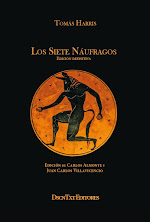
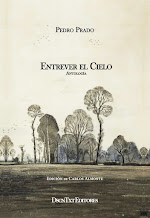



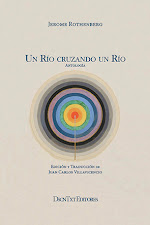


































































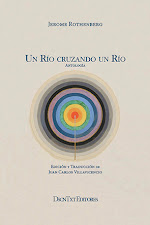









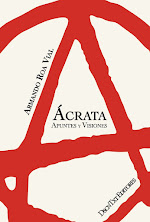













No hay comentarios.:
Publicar un comentario